Each country in the world has their own unique culture and tradition. These are the things that make a nation different from the others. In Japan, two of the most celebrated traditional events are “Setsubun” (Seasonal Division) and “Hinamatsuri” (Doll’s Day or Girls’ Day) which are celebrated the day before the beginning of Spring, February 3rd and March 3rd, respectively.
(どの国にも他国とは違う,個性的な文化や伝統がありますよね。日本では,立春の前日である2月3日に“節分”,3月3日に“ひな祭り”があります。)
During the celebration of “Setsubun”, Ishida Kindergarten were “attacked” by “oni” or demons (played by teachers who dressed up as demons). The students reacted differently. Others were crying and scared while the others looked brave and calm. They drove the demons away by saying the famous line, “Oni wa soto, fuku wa uchi” which means “Demons out, good luck in”.
(節分の日,石田幼稚園には“鬼(鬼の恰好をした先生たち)”がやってきました。子どもたちの反応は様々でした。泣いている子や怖がっている子もいれば,勇ましく落ち着いている子もいました。子どもたちは「鬼は外,福は内」と言いながら鬼を追い払いましたよ。)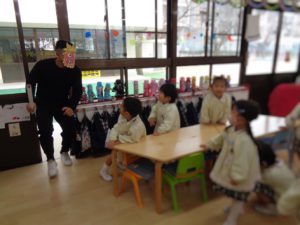
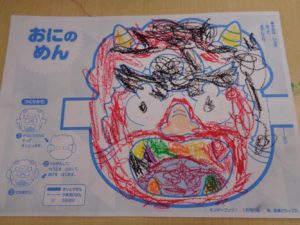
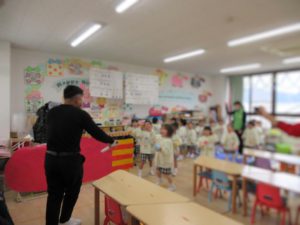
On the other hand, the celebration of “Hinamatsuri” was much calmer. Each class talked about everything that they had to know about Hinamatsuri and made some crafts about it. They even had a special lunch just for the said event called “Chirashizushi”.
(一方で,ひな祭りはとても穏やかです。それぞれの保育室でひな祭りの話をしたり,歌を歌ったり,制作をしたりしました。1日には「ちらし寿司」という特別な昼食を食べましたよ。)
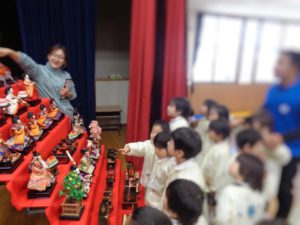
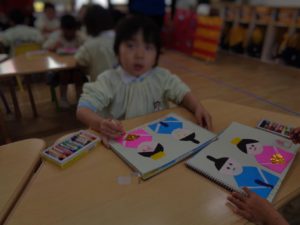
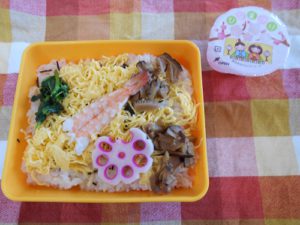
Remembering and celebrating these traditional events are necessary for cultural awareness. And as teachers, it is our duty to teach the future generation these things.
(これらの伝統的な行事を覚えたり祝ったりすることは,文化的認識を高めるために必要です。教師として,未来の世代に教えていくことは私たちの義務だと考えています。)
―Doms―







